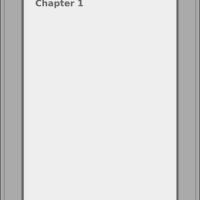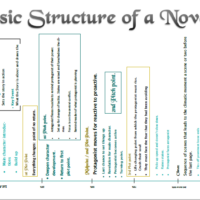
by Anna Johnstone | Nov 28, 2017 | Advice, Blog, Service
A sample edit is an indicator of many things; the professionalism and ability of the editor is only one factor. The sample indicates the level of the work to be undertaken and it allows the editor to asses pricing but did you realise it also shows the editor the level of respect they hold for the skills of the editor?
These did not develop overnight and it is not something that just everyone can do. In the last fourteen months, I have lost count of the number of sample edits I have completed. Some of them took me a whole morning and others took me the best part of a day, depending on the amount of work that needed to be done.
‘But why should authors pay for what they can get for nothing?‘
The reason to pay for samples is two-fold.
First. Refusal to pay for sample edits signal, at least in part, an expectation that editors are automatically obligated to give up their time, and should be grateful for every scrap of attention an author puts their way. Given that this is an attitude that many of us in the creative industries have to explain when companies and individuals want to pay us in ‘exposure’ and think that the satisfaction of completing the work should be its own reward, it saddens me when we have to deal with this from other creatives. The willingness of an author to pay for a sample edit is a clear indication that they acknowledge that your time is as valuable as the skills they want to employ. It says ‘I understand there is a person at the other end of this email who is working hard to make a living, and they deserve to be paid fairly for the work they put in‘. It tells the editor a great deal about the author: remember they are assessing the author every bit as much as the author is evaluating them. Simply put, it’s a matter showing respect between author and editor.
Second. Many service industries charge a call out fee to cover the time it takes them to assess the work in question, and a sample edit is no different. You would not expect a plumber, cleaner, gardener or electrician to come to your home or to give up a morning of their time for nothing. In my view, creative services are no different. The sample fee implies the level of commitment of that potential client. Even web developers charge a consultation fee, This is not to say that editors should not offer free samples if they so wish, only that you should not be put off when editors do charge for their sample edits. By ignoring the editors who don’t offer free samples you could be depriving yourself of an opportunity. What you have found is not a ‘greedy editor‘, but a confident and skilled professional who knows the value of both their skills and their time.
![How to be a good client.]()
by | Mar 26, 2017 | Advice, Blog
We’ve all heard of that one person who demands more from a service than is strictly reasonable, haven’t we? They want the dry cleaner to somehow get the turmeric stains off of the front of their favourite top and then scream blue murder if they – unsurprisingly – fail. They expect freebies, discounts, and are rude to waiters. They delay paying a bill for something because they’d rather go down the pub. They’d even go so far as to make a spurious complaint on the off-chance that they could save a few quid, never mind the effect that complaint could have on another person. Okay. These are extreme examples. The point is that while we expect to get our money’s worth out of a service, a healthy business relationship is a two-way street. In light of this, here are a few things to bear in mind in order to not be that customer.

Always prepare a brief.
We love these. These tell us exactly what is expected of us and enable us to realistically price and plan your project. A brief to an editor should include the following information.
- The title of the work and the author’s name and contact details.
- How many files are involved and what they include.
- The nature of the work. Is it a novel, an essay for assessment, an article for a magazine etc.? This helps us assess if we have the necessary skills to complete your project. Some editors specialise in fiction in a particular genre so sending them your dissertation on the history of the paperclip (gripping material) would not do you a lot of good.
- The deadline and when you expect the project to begin. This editor might not be available at the time you need them. If you ask, they might be able to point you in the direction of someone who is not only available but shares your obsession with stationery.
- The length of the document. This will affect the pricing of the document. Your editor needs to factor their time into the equation.
- Is it a blind edit? If the document has undergone editing prior to your project, you may want to send the original as well as other documents so that this editor can see what changes have already been made. You don’t want them undoing the work of another. It’s a waste of their time and yours.
- The style guide or house style you are working from. Send them a copy so they can familiarise themselves before starting work.
- The level of intervention expected. Don’t be the client that asks for a copy edit but expects the whole thing to be rewritten. This part of the brief allows the editor to clarify which parts are part of the normal service and which bits are extras. You will be expected to either sacrifice extras or pay for them. Similarly, you might only want to check for spelling, grammar and typos.
Your editor has many talents, but mind reading is not one of them. The brief above is the bare minimum of the information you should expect to provide. Being clear from the beginning will help avoid any nasty surprises later on. It will save you both time,

The price may be negotiable but an agreement is an agreement.
Many editors now will issue a service agreement relating to the final negotiated terms of payment. These include the services expected, sometimes in great detail, so be sure to read them thoroughly before sign anything. It also includes the rate that you have agreed to. This agreement stage protects you as much as the editor but while it constitutes a promise to carry out x, y, z, it also constitutes a promise from you to treat the service provider fairly.
A service agreement will, at the very least, include the rate that you have agreed to pay, the services to be carried out, deadlines, and the dates by which it is to be paid. You might have arranged an instalment plan. If so, you have a responsibility to make these scheduled payments at the agreed time. It will likely list any penalties and consequences for not meeting your side, as well as what they are prepared to do in the event that they fail to fulfil their end. If you do not feel these are fair then you should not sign the agreement. Attempt to negociate terms but be fair. You cannot expect them to remove anything that protects them.
Asking for extras mid-project is another danger area. For instance, if you went to a local store to collect and pay for your paperclip order but, on the way, decided you wanted bulldog clips instead, you would expect to pay the bulldog clip price, would you not? The rule is the same for services. If you want extra, this may often mean amending and signing the service agreement to reflect the changes. You can be a good client by
- Asking if it is feasible to extend the length of the project. Your editor may not have the time. Some of us work on more than one project at once while others prefer to concentrate on one project at a time. We all work differently so you should double check that we are available before giving us extra work.
- Ask how much extra it will cost. If you went to a local store to collect and pay for your paperclip order but, on the way, decided you wanted bulldog clips instead, you would expect to pay the bulldog clip price, wouldn’t you? The same applies to services. Similarly, if you found that you had left something out of your brief, and it hasn’t been done, you would not complain that the editor did not fulfil your brief.
- Paying as promised and on time.

Trust
This works on both sides. You need to trust that your editor knows what they are doing and that they can deliver the service to the promised standard. They need to trust that you will uphold your end of the bargain. No matter who much you like an editor, if they feel that you have acted unfairly, they may decide that the stress of working with you is not worth the price.
You chose your editor because they possess a skill set that you do not. For this reason, alone you should listen to them. Give them the freedom to keep their promises to you. Editing is a collaborative process which takes both time and care. If they come to you with a query, answer it promptly and politely. It is true that anybody can call themselves an editor, and unfortunately there are cowboys and charlatans in every walk of life, but the good ones know their craft. Treasure them. Many are published authors in their own right so have experience from both sides of the relationship and empathise with your anxiety. They also take pride in their work and want to help you make the best of your work. It’s not just about making money.

Professional pride
Like other services, our living relies upon our reputations. There is a fine balance between personal opinion and the decisions formed by experience and skill. If your editor feels they are unable to point out flaws in your writing, due to the reaction it might induce, they will not be working to your best advantage. You want your editor to pick up problems and bad habits. It’s how you will learn to be a better writer. So while an editor might exceed their remit in some cases, remember they are doing the job to the level that they would eexpectto receive it.
Back to the dissertation analogy here. Say you handed them your brief to check spelling and punctuation only, but the editor noticed that your use of paperclip vs. paper-clip was inconsistent, but because they had not raised the issue or highlighted them, you were marked down by your tutor. And what if the reason they had not mentioned anything is becasue you had refused to accept input over the wording. This would not be what the editor would regard as a successful outcome even if they had fulfilled the terms of the brief to the lettter. This can be avoided by
- Being flexible with your brief. If you have left something off and the editor raises the issue, it is usually because some part of your writing has raised a concern and they could not, in good conscience return the editied work without raisning the issue. This is a good thing.
- Ensuring your brief includes everything you want from the service. It is also way the pre-project discussions are so important.

Reasonable deadlines
It doesn’t matter how fast someone reads...Scratch that. It matters a lot.
Proofreading, in particular, means slowing… right… down… and taking in every word carefully. It means looking for extra tall lettters hidden with others, because the human eye is a lazy beastie and will assume that what it sees is what is really there. Reading a two hundred page novel might be possible in two or three days, but editing is not the same as reading for pleasure. Often, it means checking that all captions match images and bibliography formats are correct, looking for double spacing, transpositions, or repeated text. In other words, it means doing what the spell-checker can’t do; apply common sense. This is also why you shouldn’t just forgo editors and rely on the spell check. The spell check can’t find plot holes. It is vital that you apply common sense and allow adequate time for the work to be carried out. A betaread of a 85k word novel could easily take two weeks due to the level of care needed in the reading.

Leave fair and honest feedback; spread the word
If you are happy with the service you have recieved then say so. Frequently. Recommend them to colleagues and friends. Way back before the internet, businesses lived and died on their reputations. Today, this is even mor the case. The rise of social media means that the lack of pressence and reviews is almost as bad as negative reviews. It tells future clients that this person cannot deliver what they promise. It’s like the boss who ‘loves’ you right up until you leave, then refuses to give you a reference. Reviews are the references of the information age. Use them. Tell the world you love your editor and why.
The other thing not to do is to leave vaugue feedback, or comments which contradict your repsonses to the editor. The feedback is not the place to bring up new problems. It is the place to tell people how well your editor did their job including dealing with a misunderstanding over style. Your editor relies on feedback to not only gauge reach and reception, but to iprove their service. It is important they these be honest. A dishonest negative review can do someone real harm, they are not funny or ethical. If your editor has failed to meet a deadline or fulfil their side of the agreement, AND THEN failed to deal with the situation adequately, then by all means take to their facebook page and lambast away. At least initially, you should deal with greivances calmly and in private.
by | Mar 9, 2017 | Advice, Blog
Authors,
I ask now for you to put yourself in the role of a freelance editor. Now, imagine a situation whereby a client approaches you, accepts a quote, goes through the sample edit process etc, and after a week of schedule-juggling, they promise to send the rest of the service agreement paperwork back to you that day. All good so far. Now, consider how you would feel if the job you had worked extremely hard to win was suddenly taken from you because the cancelled on the grounds that a quote your client has just received another quote for ‘considerably less’ than the rate they were expecting to pay you. While the second editor in the above scenario may have had no idea that a contract and a price had already been agreed (bar signing on the line), the author most certainly did know and actively chose not to disclose the fact. They choose, instead, to disregard past promises as and when they saw an immediate advantage. Is such a person likely to prove trustworthy in the future? Unlikely, and I would caution editors away from future professional engagement with those who have acted in such a manner.
When you take on an editor, you are entering into a business relationship which requires a high level of mutual ethical conduct and trust. This relationship is far more formal than that of a consumer/retailer or service provider. In a business relationship, there are some basic rules which determine its success. One such rule is to treat others with the same honesty, respect fairness that you expect to be treated with. In business, all is not fair. A promise is a promise and honesty is always the best policy. If you are an author and find yourself in a situation where you must make up a story in order to get out of a promise or an obligation, the likelihood is that you already know that you are behaving unethically. Would you take on an editor with a reputation of behaving dishonestly?
The indie author community is growing but is still fairly new. You know the constant uphill struggle of finding editors and agents willing to take you on. The struggle is the same for editors who are trying to make a living in an industry with limited cash flow. That said, most of us will not willingly undercut one another, or poach clients. If given the full facts the above latecomer would probably walk away. The author opted to deny them the opportunity to make an informed choice. Writers and the creative community as a whole have a responsibility to display demonstrable honesty in our dealings with each other and treating even freelances editors poorly, or sowing mistrust between us, will reflect badly on the emerging industry. It could even be used to justify the remaining prejudice against self-published authors.
My advice if you ever find yourself in the above situation as an author is that if a late quote comes in after you have made a promise, then it is the ethical decision to thank them but let the latecomer know that you have already accepted another editor. You don’t necessarily have to let them know what you are paying, but give them the opportunity to step back. If they then try to undercut the accepted offer, you will know what sort of person you are dealing with. Deception by omission is still deception, and clients can earn a reputation for bad practice as easily as editors can. Think carefully about how you conduct yourself. A good editor, treated well could last your entire writing career. Treat them badly and you could end up with a long list of people who simply will not work with you.




















